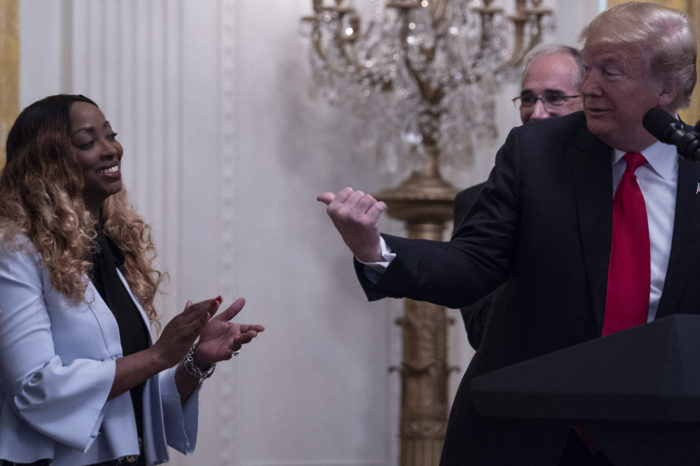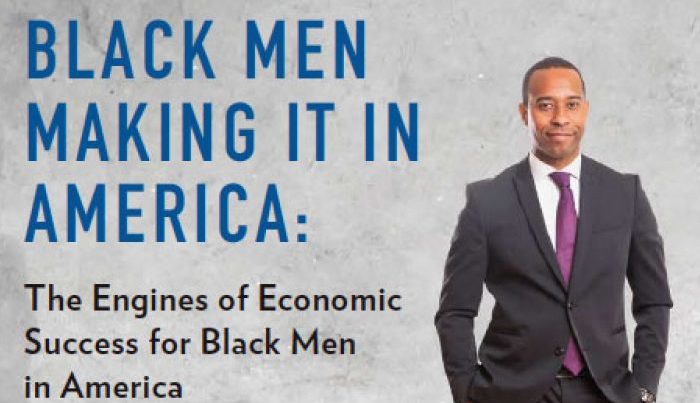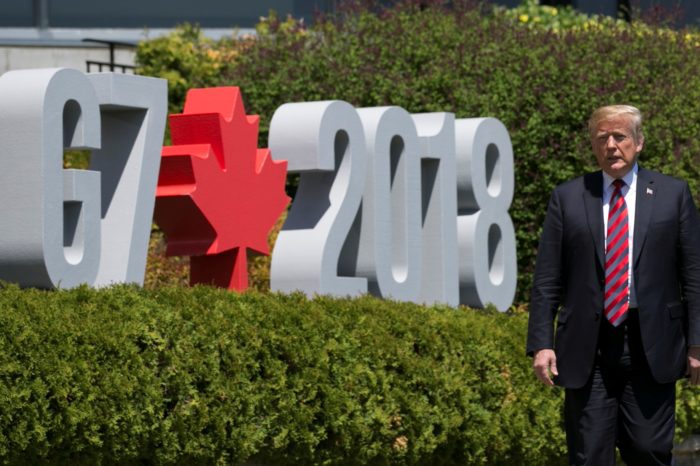 “The country would be wise to let the market take a shot at cleaning up government waste.” – Brittany Hunter”
“The country would be wise to let the market take a shot at cleaning up government waste.” – Brittany Hunter”
Last week, the Trump administration unveiled a proposal to privatize the United States Postal Service (USPS). The plan comes as part of a broader initiative to trim and reorganize the federal government. And given its track record of waste and inefficiency, the USPS is a great place to start cutting the fat.
“USPS’s current model is unsustainable. Major changes are needed in how the Postal Service is financed and the level of service Americans should expect from their universal service operator,” the White House’s new proposal reads. The plan goes on to say that the administration plans to “fix” the post office before beginning the process of privatization. “USPS privatization through an initial public offering (IPO) or sale to another entity would require the implementation of significant reforms prior to sale to show a possible path to profitability.”
In terms of “fixing” the post office before taking it out of the hands of the government, the Trump administration has proposed reassessing the USPS’s ties with labor unions. This would give the new owners of the post office more freedom to set wages and provide benefits that are economically realistic.
The document reads:
“Freeing USPS to more fully negotiate pay and benefits rather than prescribing participation in costly federal personnel benefit programs, and allowing it to follow private sector practices in compensation and labor relations, could further reduce costs.”
As it stands today, much of the financial mess the USPS has found itself in is because of the exorbitant benefits programs that come with collective bargaining. In fact, as it stands today, the USPS still owes over $100 billion to its retiree health benefits fund.
It should come as no surprise that the National Association of Letter Carriers (NALC) have joined the likes of Bernie Sanders in opposing privatization. Commenting on the matter the NALC President Fredric Rolando said:
“NALC has long been committed to working with all of the stakeholders and not one has floated the idea of privatization except private shippers, who would love nothing more than to see the Postal Service dismantled. Now that we know that this administration and its Task Force will make recommendations on reforms to achieve OMB’s privatization goals, NALC will work tirelessly with other stakeholders and Congress to oppose this faulty privatization plan every step of the way to preserve this public institution, which is based in the Constitution.”
To be sure, when Rolando speaks of other “stakeholders” he is speaking about the other labor unions who have a vested interest in seeing this perpetual cycle of inefficiency continue, so long as they continue cashing checks. In fact, Mark Dimondstein, the president of the American Postal Workers Union echoed this sentiment, calling the privatization proposal “draconian” and predicting that it “would end regular mail and package services at an affordable cost.”
But as it stands currently, costs are hardly affordable. In addition to the billions of taxpayer dollars used to fund the post office, “consumers” also have to pay to use the USPS services, which essentially means that post office patrons are actually paying twice.
But all this just speaks to the larger point that the post office has been an incompetent disaster for far too long. It is about time some sort of action was taken.
The Post Office Is A Mess
No one looks to the post office as a beacon of government competence. Actually, no one looks to the post office for any sense of efficiency at all. And while the United States Postal Service has frequently found itself at the butt of many jokes, the truth of the matter is that its incompetence is costing the American taxpayers billions of dollars each year.
For the last 11 years in a row, the post office has experienced financial losses. In 2012, it was revealed that the USPS had experienced a net loss of $15.9 billion dollars. In 2013, this number decreased to a still enormous $4.8 billion, followed by $5.3 billion in 2014. As far as fiscal year 2018 is concerned, the Postal Service has already reported a $1.3 billion dollar loss. If any private company had experienced net losses to the tune of several billions of dollars, they would quickly find themselves out of business. But the post office is a beast of a different color.
As the USPS is a government protected monopoly, it does not have to respond to market demand. And since the taxpayers are on the hook for funding the USPS regardless of its performance, there are almost no consequences for its ineptitude. In fact, in many cases, it has been rewarded for its incompetence by having more money thrown in its direction.
It might be easier for Americans to look the other way and ignore all the wasteful spending if the post office actually held some sort of relevance in our daily lives. But in the digital age, there is really no justification for extorting money from taxpayers in order to pay for an outdated service that most people do not need. All correspondence can now be done through email and online shopping has completely replaced the need to send off for physical retail catalogs. Most bills are also already sent through email, with many companies even offering discounts for going “paperless.”
While congressional approval is needed before any manner of privatization can occur, it has been met with opposition by both members of Congress and labor unions. Unfortunately, the term “privatize” scares many, who fear what might happen if the post office is put in the hands of “greedy capitalists.”
Luckily for the critics, the post office serves almost no purpose in our digital age, making these concerns virtually unfounded. Not to mention, considering the USPS’s reputation for inefficiency and waste, it would take a great deal of effort for the private sector to do a worse job than the government has done.
Experiments in Privatization
Bernie Sanders recently expressed his concerns over Trump’s plans for the post office, saying:
“If the goal of the Postal Service is to make as much money as possible, tens of millions of people, particularly low-income people and people in rural areas, will see a decline in or doing away with basic mail services.”
But those who, like Sanders, are wary of putting the post office in the hands of the private sector might be surprised to learn that many European countries began privatizing their postal systems years ago. And it didn’t end in a disaster. For example, when Germany privatized the Deutsche Post in 1995, it helped saved the country’s mail system.
In the wake of the Cold War and the fall of the Berlin Wall, Germany was ready for change. Much like the USPS, prior to privatization, the Deutsche Post was slow and costly. Eager to get this wasteful agency out of the state budget, Germany decided to experiment with privatization. While the process was rather long, privatizing the German post and giving it control over its own operations allowed it to function like an actual business.
Now able to make decisions without the input of state authorities, Deutsche Post was able to implement policies that saved vast amounts of money. Instead of hiring new couriers to replace those who had retired, the German post opted to leave the positions vacant. They also centralized routes to save money where they could. Coincidentally, this plan to centralize routes is also part of the proposal by Trump administration.
The only law that the German government placed on the Deutsche Post was to mandate that letters were to be delivered to all areas of the country, meaning no one could be excluded.
Sure, this one stipulation did give the government a little control over the post, but it was far preferable to the previous situation. Since it was now privately controlled, Deutsche Post was still able to make the important budget decisions that ultimately led to its eventual success. In fact, the German privatization model was so successful, it now runs the DHL shipping company. And while the German model provides a beacon to look to abroad, even the United States has had its own experiment in privatizing the mail.
In 1844, Lysander Spooner was frustrated by the increasing costs of the USPS. Recognizing that as a government monopoly, the post office was exempt from having to actually care about its consumers’ needs, Spooner founded The American Letter Mail Company. Charging less and providing better services than the USPS, Spooner’s venture became a direct competitor to the almighty state.
However, while the American Letter Mail Company did end up having several locations in cities like Baltimore, Philadelphia, and New York, the USPS was not impressed. Angered by Spooner’s success, the government made threats to railroad companies who preferred Spooner’s services. When the state fought back, the Circuit Court actually began to doubt that the government had any authority to monopolize the mail. While the Constitution does give the government the power to run the Postal Service, it does not explicitly bar other companies from competing with state-run services. However, the state sought legislative action against Spooner, reinforcing its monopoly.
Commenting on the advantage private enterprise has over government-run services, Spooner wrote:
“Universal experience attests that government establishments cannot keep pace with private enterprise in matters of business — (and the transmission of letters is a mere matter of business.) Private enterprise has always the most active physical powers, and the most ingenious mental ones. It is constantly increasing its speed, and simplifying and cheapening its operations. But government functionaries, secure in the enjoyment of warm nests, large salaries, official honors and power, and presidential smiles — all of which they are sure of so long as they are the partisans of the President — feel few quickening impulses to labor, and are altogether too independent and dignified personages to move at the speed that commercial interests require. They take office to enjoy its honors and emoluments, not to get their living by the sweat of their brows.”
Governments love to think inside the box. In fact, they are almost incapable of operating in any other fashion. But this has led to major inefficiencies, which, in the case of the USPS, have become too expensive to ignore. While Congress would need to approve this plan before any measure of privatization can occur, our elected officials would be wise to look at the options the private sector has to offer. If we are truly seeking prosperity, rather than financial insolvency, then the country would be wise to let the market take a shot at cleaning up government waste.

Brittany is a writer and editor for the Foundation for Economic Education. In addition to co-hosting FEE’s weekly podcast, she is also a co-host of Beltway Banthas, a podcast that combines Star Wars and politics. Brittany believes that the most effective way to promote individual liberty and free market economics is by telling timely stories that highlight timeless principles.

















 CAIR issued
CAIR issued 










